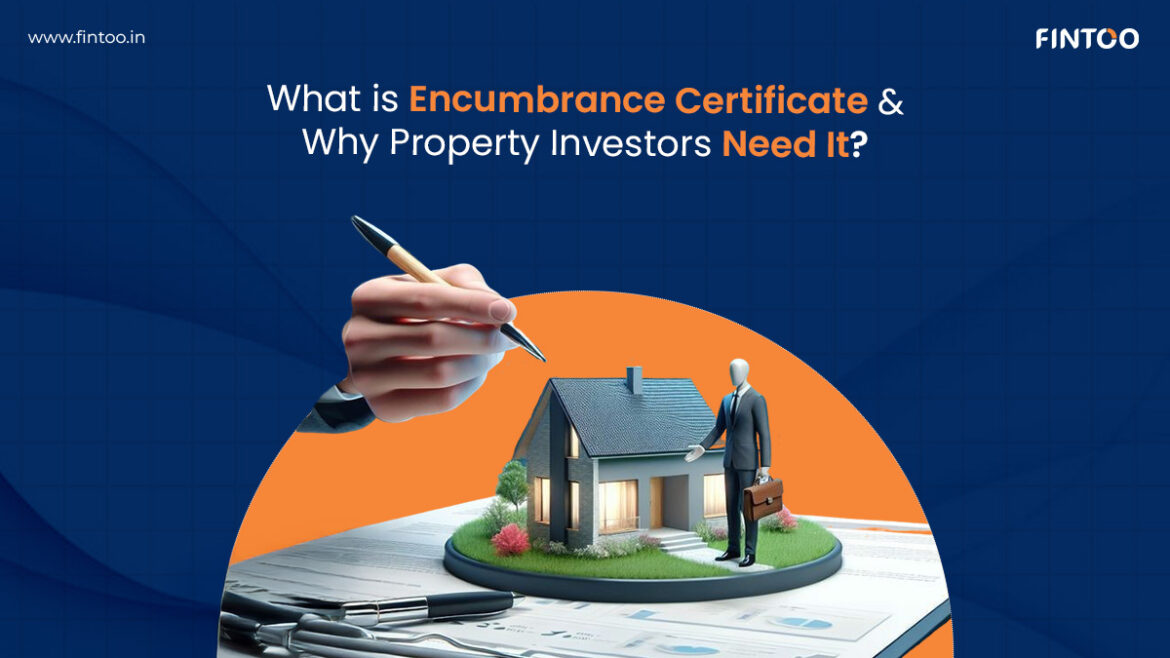

Whether you’re buying your first home or investing ₹5 to ₹10 crore in real estate, ensuring a property has a clean legal record is crucial. One of the most important documents you need in this process is an Encumbrance Certificate (EC).
In this article, we’ll break down the meaning of Encumbrance Certificate, who needs it, why it’s important, and how to get one online or offline. This guide is jargon-free and made for anyone looking to make safe, smart property decisions.
What is an Encumbrance Certificate?
An Encumbrance Certificate (EC) is a legal document issued by the Sub-Registrar Office that confirms whether a property is free from any monetary or legal liability such as:
- Unpaid loans/mortgages
- Legal disputes
- Claims by third parties
In simple terms, it proves that the property you’re eyeing has a clean title — making it safe to buy or invest in.
Encumbrance Certificate Meaning
Let’s say you’re planning to buy a commercial property in Mumbai for ₹6 crore. You find a great deal and everything looks perfect. But if the current owner had taken a loan against it which hasn’t been repaid, you could get stuck with the liability later.
That’s where the EC saves you — by revealing the full financial and legal history of the property.
Who Needs an Encumbrance Certificate?
If you fall under any of these categories, you definitely need an EC:
- Property Investors (especially ₹5–10 Cr. investment scale)
- First-time Home Buyers
- People Applying for a Home Loan
- Buyers of resale property
- Legal heirs verifying inherited property status
Why is an Encumbrance Certificate Important?
An EC is not just a formality — it is a safety shield for your hard-earned money.
| Reason | Benefit |
| Proof of Ownership | Confirms the seller has legal right to sell the property |
| Loan/Dispute-Free | Ensures no existing home loan, lien, or litigation |
| Safe Investment | Protects against fraud, third-party claims, or forged deals |
| Loan Eligibility | Required for home loan approvals from banks/NBFCs |
| Title Clearance | Needed during legal due diligence or inheritance |
Without an EC, you’re buying blindfolded. With it, you’re making a smart, informed, and legally safe decision.
How to Get an Encumbrance Certificate in India?
You can obtain an EC both online and offline, depending on your state.
Option 1: Get EC Online
Most state governments now offer online EC services through their official registration departments.
Steps:
- Visit your state’s registration portal
(e.g., Tamil Nadu – tnreginet.gov.in, Karnataka – kaverionline.karnataka.gov.in)
Most state governments now offer online EC services through their official registration departments.
Major State Portals: – Tamil Nadu: tnreginet.gov.in
Karnataka: https://kaveri.karnataka.gov.in/
Maharashtra: igrmaharashtra.gov.in
Telangana: registration.telangana.gov.in/ec.htm
Kerala: pearl.registration.kerala.gov.in
Rajasthan: epanjiyan.rajasthan.gov.in
For Other States:
Visit: https://www.india.gov.in/apply-online-encumbrance-certificate-0 - Register/Login with your mobile number
- Go to Encumbrance Certificate section
- Enter property details (Survey No., Document No., Period, etc.)
- Upload necessary documents
- Pay nominal fees (varies by state)
- Download the EC once processed
Processing Time: 7–15 working days (depending on the state)
Option 2: Get EC Offline (Sub-Registrar Office)
If online isn’t available in your state, visit your nearest Sub-Registrar Office.
Documents Required:
- Copy of Sale Deed
- Property details (Survey number, location)
- Your ID proof (Aadhar, PAN)
- Application Form (available at SRO)
- Fee payment receipt
Processing Time: Typically 7–15 days
Fees for Encumbrance Certificate
The application fee for an EC is minimal and varies from ₹200 to ₹500 based on:
- Number of years searched (e.g., 10 years or 30 years)
- State/UT regulations
Tip: Always apply for a 30-year EC if you are buying old or resale properties.
EC Format: What It Includes
A typical Encumbrance Certificate includes:
- Owner’s name
- Property description
- Transaction details (sales, mortgages, leases)
- Date-wise entries for each transaction
- Type of encumbrance (if any)
- “Nil Encumbrance” statement if no liabilities exist
What is a Nil Encumbrance Certificate?
When there’s no encumbrance at all on the property during the selected period, the authority issues a Nil EC. This is the best-case scenario — it means the property is legally spotless.
Difference Between EC and Property Title
| Point | Encumbrance Certificate | Property Title Deed |
| Purpose | Shows legal/financial history | Proves ownership |
| Issued By | Sub-Registrar Office | Buyer/Seller/Builder |
| Shows Mortgage/Loan Info | Yes | No |
| Required For | Home loan, resale, property check | Legal transfer of ownership |
Think of EC as your property’s credit history. The Title is its birth certificate.
High-Value Property? Here’s How EC Saves a ₹10 Cr Investment
Let’s assume you’re considering buying a ₹10 crore luxury flat in a prime metro city like Delhi or Bengaluru. Without checking the EC, you might:
- End up buying a mortgaged asset
- Face legal complications post-sale
- Lose credibility while applying for a loan or resale
Now imagine you reviewed the EC of past 30 years, found it clean, and proceeded. That’s not just smart due diligence — it’s bulletproof investing.
Summary Checklist
| To-Do | Status |
| Understand EC’s purpose | ✅ |
| Know who needs it | ✅ |
| Collect documents | ✅ |
| Choose online or offline process | ✅ |
| Apply and keep a copy safe | ✅ |
Final Thoughts
Whether you’re investing ₹50 lakh or ₹50 crore in property, an Encumbrance Certificate is your first line of legal defense. It helps you sleep peacefully, knowing your investment is free from debt, dispute, or deception.
Don’t just trust the builder or broker — trust the paperwork.
Planning to buy property? Let us help you check the legal health of your investment—talk to Fintoo today.
Frequently Asked Questions (FAQs)
Q1. Is EC mandatory for home loan?
Yes, banks and NBFCs require it before sanctioning a property loan.
Q2. Can EC be obtained for under-construction property?
Yes, but only if past transactions exist on that land parcel.
Q3. Is EC valid for lifetime?
No. It’s valid only for the period you apply for (e.g., 10 or 30 years).
Q4. Can I apply for EC for someone else’s property?
Yes, if you have the relevant property and document details.
Disclaimer: The views shared in blogs are based on personal opinions and do not endorse the company’s views. Investment is a subject matter of solicitation and one should consult a Financial Adviser before making any investment using the app. Investing using the app is the sole decision of the investor and the company or any of its communications cannot be held responsible for it.
Related Posts
Stay up-to-date with the latest information.


